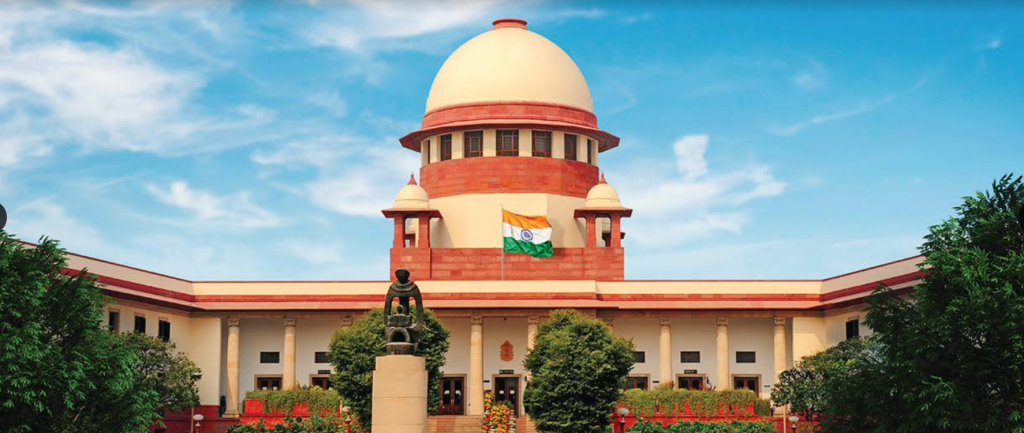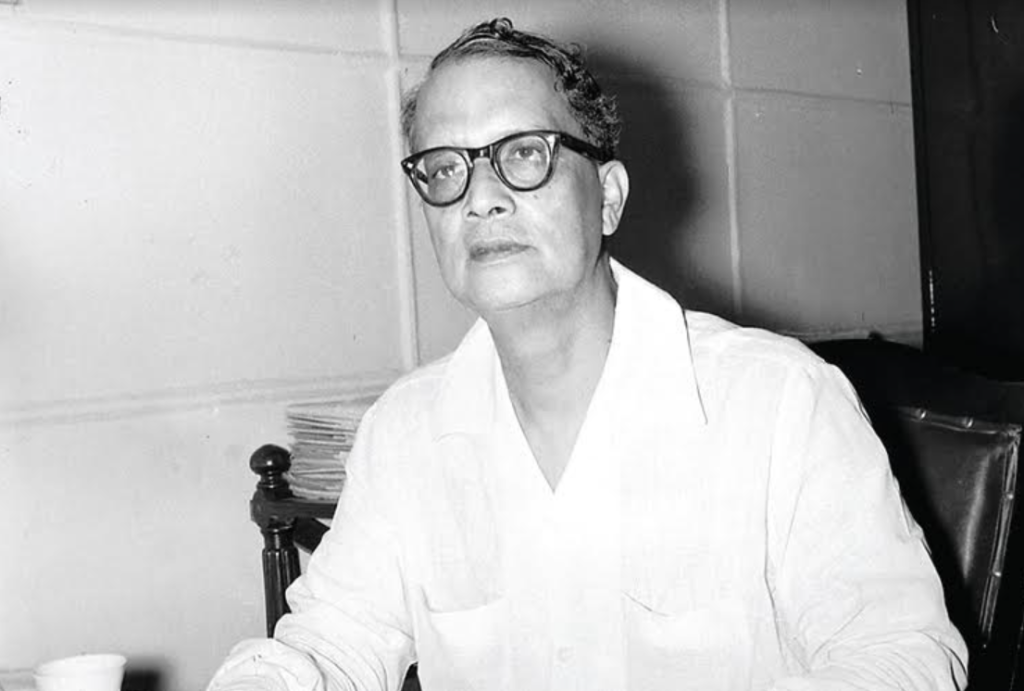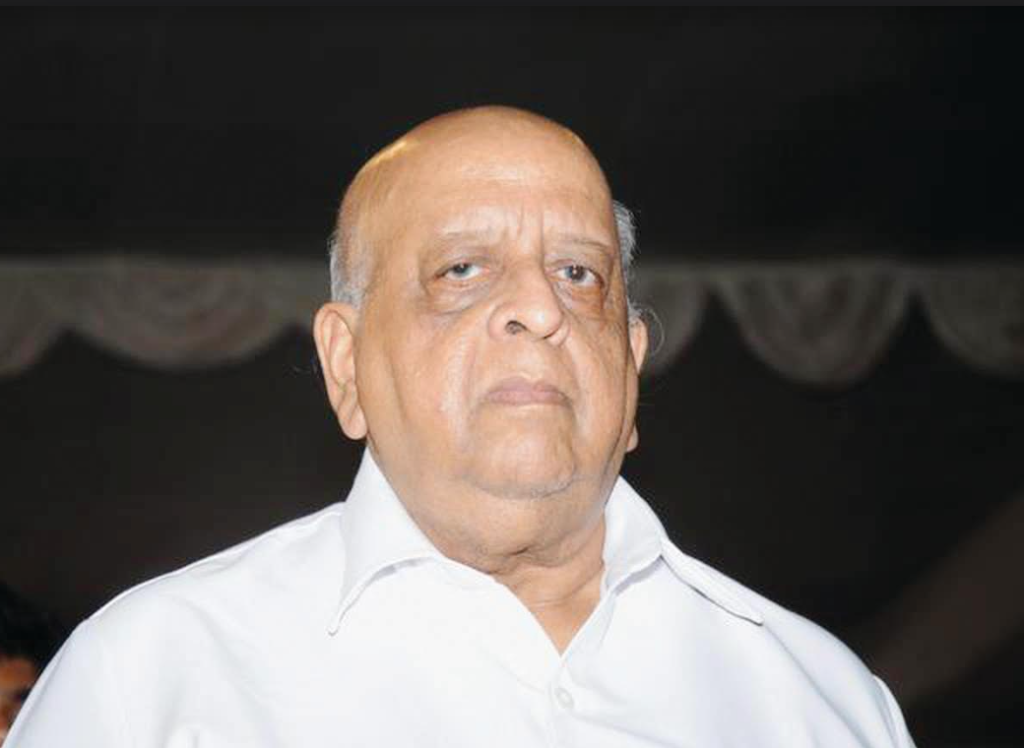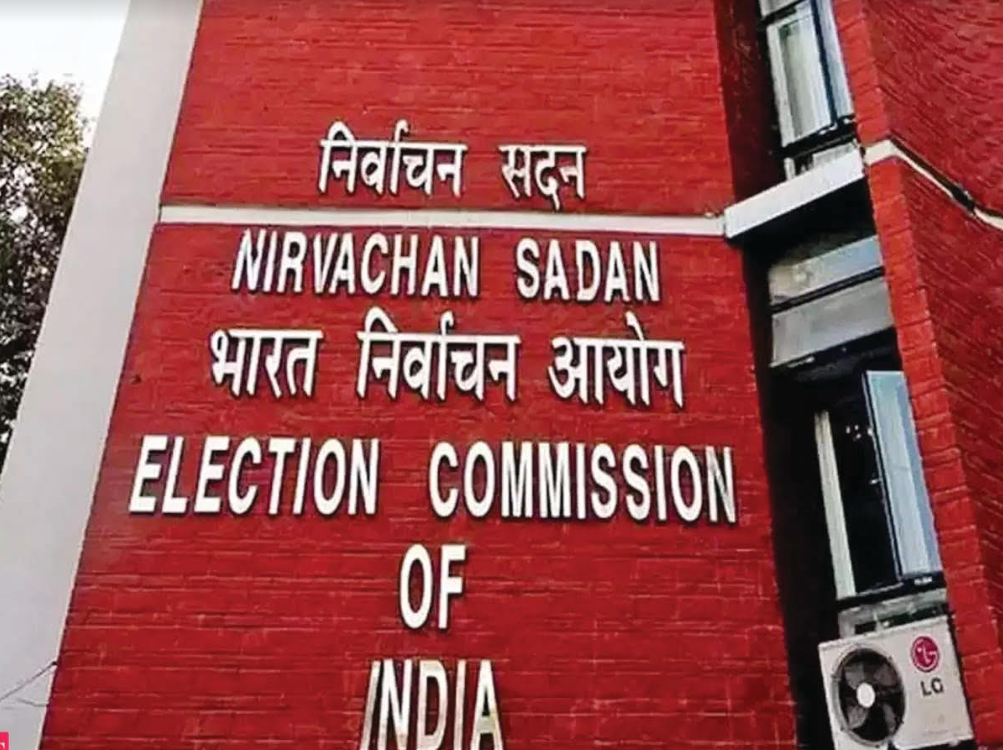The vital foundation of the Election Commission of India, which was strong at the time of its formation has eroded over time. The autonomous constitutional authority has faced several challenges as a result of its actions. Let us take a look at the journey of ECI since 1950 till date
By Arun Bhatnagar
- Foundations laid by Sukumar Sen and KVK Sundaram were preserved and carried forward by men like Dr. Nagendra Singh
- TN Seshan had initiated the process of cleaning up the electoral system
- The only lady CEC so far, VS Ramadevi (1934-2013) briefly held the post in November-December, 1990
- 66 ex-bureaucrats, in a letter addressed to the President, voiced concern over the steady erosion of the impartial working of the ECI
One should, at the outset, laud the foresightedness of the Chairman of the Constitution Drafting Committee, Dr B R Ambedkar (1891-1956), alongside luminaries of the stature of Dr Rajendra Prasad, President of the Constituent Assembly and, among others, the redoubtable Sir Alladi Krishnaswamy Iyer (1883-1953) who conceived a truly Independent Election Commission for the country that was completely outside the purview of the Executive.
Dr Ambedkar, the main architect of the Constitution, credited Sir Alladi’s contribution: “There were men in the Drafting Committee, men bigger, better and more competent than myself, such as my friend, Sir Alladi…”. When the Constituent Assembly adopted the principle of ‘universal adult franchise’, Sir Alladi remarked that this was done with an abundant faith in the common man, the ultimate success of democratic rule and in the full belief that the introduction of democratic government, on the basis of adult suffrage, will bring enlightenment and promote the well-being, the standard of life, the comfort and decent living of the man in the street.
Herein, lies the central importance of the Election Commission of India. Sir Alladi was Advocate General of the Madras Presidency between 1929-44.
EPITOMIC FOUNDATION
The procedure for the electoral process laid down in the Constitution under Article 324 is exemplary. By virtue of this Article, the Election Commission of India (ECI), as a constitutional body, has superintendence, direction and control of the entire process for the conduct of elections to Parliament and the State Legislatures (Legislative Assemblies and Legislative Councils) and to the offices of President and Vice-President of India.
It approves the location of polling stations, assignment of voters to the polling stations and determines the location of counting centres, as also the arrangements to be made in and around political stations/counting centres and allied matters.
The ECI was established on January 25, 1950. A particularly able civilian, then the Chief Secretary in West Bengal, Sukumar Sen (ICS, 1921) served as the first Chief Election Commissioner between March, 1950 – December, 1958 and oversaw Independent India’s first two general elections, in 1951-52 and in 1957. Sukumar Sen (1898-1963) was the elder brother of Ashoke Kumar (AK) Sen, a later-day Union Law Minister who was, for many years, the inevitable Law Minister. Another brother, Amiya Kumar Sen, an eminent physician, was, probably, the last person to see Rabindranath Tagore alive.
He was among the first recipients of the Padma Bhushan in 1954 and also worked in Sudan and Nepal. In 2002, a leading Indian historian wrote about Sukumar Sen on the 50th anniversary of India’s first General Election:
“Nehru’s haste [in wanting the first general election] was understandable, but it was viewed with some alarm by the man who is an unsung hero of Indian democracy. It is a pity we know so little about Sukumar Sen. He left no memoirs and, it appears, no papers either …”.
From my own childhood memories of New Delhi in the early 1950s, I remember that he stayed in a sprawling bungalow at 6, York Place (now Motilal Nehru Place).
The ECI was lucky to find in Kalyan Vaidyanathan Kuttu (KVK) Sundaram (1904-1992), a worthy successor to Sukumar Sen. He was a member of the Judicial Branch of the ICS in the former Central Provinces and Berar and demonstrated such legal acumen that his superior at the time, Sir Robert McNair, commented that he (Sundaram) was one of the few junior legal officers whose recommendations he took in disposing of cases.
KVK Sundaram rose to the position of Union Law Secretary in 1948 when Sir George Spence – who had earlier identified him for the post, despite the seniority of other eligible candidates – stepped down.
Ten years later, he succeeded Sukumar Sen as the second Chief Election Commissioner (CEC). His son, Vivan Sundaram (born 1943) is a well-known artist who works in different media, including painting, sculpture and photography.
The firm foundations laid by Sen and Sundaram were preserved (and carried forward) by men like Dr Nagendra Singh (ICS, CP & Berar, 1937) who was Secretary to the President of India and, later, headed the International Court of Justice at the Hague, a scion of the Sisodia Rajput erstwhile princely house of Dungarpur and R.K. Trivedi (IAS, UP, 1946).
SHIFTING SANDS
In December, 1990, a previous Cabinet Secretary, TN Seshan (IAS, Tamil Nadu, 1955) emerged on the scene.
The Law Minister in the Chandra Shekhar government (1990-91) played a key role in Seshan’s appointment as the CEC and he became widely known for the reforms enforced by him. He had initiated the process of cleaning up the electoral system. In 1992, the ECI cancelled elections in Bihar and Punjab, due to electoral issues.

Mooting the idea of inclusion of the Chief Justice of India (CJI) in the Committee to select the CEC to ensure neutrality, the Supreme Court observed, as recently as in November, 2022, that it wants a CEC of strong character. The Apex Court said the Constitution has invested enormous powers on the ‘fragile shoulders’ of the CEC and the two Election Commissioners and added that the CEC should be someone who ‘does not allow himself to be bulldozed’
Seshan seems to have been aligned, to an extent, to the Congress and he praised the policies of the PM (Rajiv Gandhi) to whom his subservience was taken note of by contemporaries and subordinates alike.
He could, on occasion, be arrogant and self-opinionated, even rude.
Post-Seshan, and particularly since around the year 2000, the ECI has been in a sort of ‘free fall’, more or less, in terms of mediocrity of individuals and their limited experience (of a diverse nature), as also the falling standards of independence and probity. The current incumbency does not appear to offer much hope in the direction of improvements.
Some of the appointments of the Vajpayee-Brajesh Mishra and Manmohan Singh-TKA Nair eras were atrocious.
Mooting the idea of inclusion of the Chief Justice of India (CJI) in the Committee to select the CEC to ensure neutrality, the Supreme Court observed, as recently as in November, 2022, that it wants a CEC of strong character. The Apex Court said the Constitution has invested enormous powers on the ‘fragile shoulders’ of the CEC and the two Election Commissioners and added that the CEC should be someone who ‘does not allow himself to be bulldozed’.
A five-judge Constitution Bench headed by Justice KM Joseph and comprising Justices Ajay Rastogi, Aniruddha Bose, Hrishikesh Roy and CT Ravikumar also said: “There have been numerous CECs and TN Seshan happens once in a while ….. We have to find the best man… The question is how do we find the best man and how to appoint that best man …”.
During his tenure, Seshan had rifts with the government in power. In 1993, the PV Narasimha Rao administration brought in an Ordinance, with the President’s Assent, under Article 342(2)(3) of the Constitution, fixing the number of ECs at two and ordered appointments to the posts.
Opposing the move, Seshan approached the Supreme Court alleging that this was being done to curb his powers. His Petition was dismissed, with the Supreme Court holding that ‘the concept of plurality is writ large on the face of Article 324, clause 2 whereof clearly envisages a multi-member Election Commission comprising the CEC and one or more ECs’.
TN Seshan’s contributions were recognized and he received the Ramon Magsaysay Award for 1996.
After retirement as the CEC, he contested the 1997 Presidential election and lost to KR Narayanan. In 1999, he stood, on Congress ticket, for the Gandhinagar Lok Sabha seat in Gujarat and was defeated by LK Advani of the BJP.
POST SESHAN ERA
A member of the Indian Revenue Service (IRS) – who was the first from his Service to reach the rank of Secretary in the Government of India – functioned as the CEC in 2004-05. No doubt, a case of extraordinary merit, as perceived by the political authorities.
The only lady CEC so far, VS Ramadevi (1934-2013) briefly held the post in November-December, 1990 and was the first (and till date the only) lady to earlier serve as Secretary General of the Rajya Sabha.
The CEC can be removed from office in a manner similar to the removal of a Judge of the Supreme Court of India which requires a Resolution to be passed by Parliament (two-thirds majority in both the Lok Sabha and the Rajya Sabha) on grounds of proven misdemeanour or incapacity.
No CEC has been impeached in India. ECs can be removed by the President of India on the recommendation of the CEC.

The ECI was established on January 25, 1950. A particularly able civilian, then the Chief Secretary in West Bengal, Sukumar Sen (ICS, 1921) served as the first Chief Election Commissioner between March, 1950 – December, 1958 and oversaw Independent India’s first two general elections, in 1951-52 and in 1957
In 2009, just before the Lok Sabha elections, the Chief Election Commissioner, N Gopalaswami, sent a recommendation to President Pratibha Patil to remove Election Commissioner Navin Chawla, who was soon to take office as the Chief Election Commissioner and to, subsequently, supervise the Lok Sabha elections.
The President decided that such a recommendation was not binding and rejected it.
Subsequently, after Gopalswami’s retirement the next month, Chawla became the Chief Election Commissioner and supervised the 2009 Lok Sabha polls.
It may be recalled that when a presidential election was taking place in the United States in 2016, a former IAS bureaucrat, who had been an Election Commissioner (EC) at a juncture when an unseemly feud raged between the then CEC (a Tamilian, with service-record in Gujarat, selected by the BJP) and an EC (a Punjabi with original roots in Multan, now in Pakistan, and selected by the Congress) opined that ‘… what has worked well for India is a fully empowered but fiercely independent and neutral Election Commission ..’.
PREFERENCES DOMINATE
Suffice it to say that this EC’s appointment was itself believed to have been touched by somewhat of a ‘minorities’ brush; he might, at any rate, have mentioned (in giving expression to his views) that it is supremely important to appoint the CEC and the ECs on the basis of recommendations of a duly notified, top-level Selection Committee rather than as an arbitrary choice of the political executive – the Government or the Prime Minister of the day – which ought to be the case for the Comptroller & Auditor General (C&AG) of India as well.
Thereafter, he opted to advocate a change in the flawed process that had resulted in his own selection, in the first place.
As early as in 1975, a Committee headed by Justice VM Tarkunde (often referred to as the ‘Father of the Civil Liberties Movement in India’) recommended that the appointments be made on the advice of a Committee composed of the Prime Minister, the Leader of the Opposition in the Lok Sabha and the Chief Justice of India.

Post-Seshan, and particularly since around the year 2000, the ECI has been in a sort of ‘free fall’, more or less, in terms of mediocrity of individuals and their limited experience (of a diverse nature), as also the falling standards of independence and probity
This was reiterated by the Dinesh Goswami Committee on Electoral Reforms in May, 1990 and the Law Commission in 2015. The Fourth Report (2007) of the Second Administrative Reforms Commission additionally recommended that the Union Law Minister and the Deputy Chairperson, Rajya Sabha should be included in such a Committee.
This writer would suggest that a Selection Committee – if constituted – should have a sitting Judge of the Supreme Court (to be nominated by the Hon’ble Chief Justice of India) as a Member and he (or she) should be empowered to exercise a veto, when called for, in deciding upon a name to be forwarded to the Government.
An ‘interaction’, purportedly informal, of the Principal Secretary in the PMO with the CEC and the two Election Commissioners raised eyebrows about the ECI’s credibility, particularly when elections to several States were around the corner.
In recent times, more than one act of the Commission has come in for adverse comment. Nearly 66 ex-bureaucrats, in a letter addressed to the President of India, voiced concern over the steady erosion of the impartial working of the ECI; they felt there exists a credibility crisis, citing violations of the Model Code of Conduct during the 2019 Lok Sabha elections.
The Election Commission has come under the scanner like never before.
Ashok Lavasa (IAS, Haryana, 1980) – a former Union Secretary – was appointed as one of the two Election Commissioners in January, 2018. He made newspaper headlines the following year after a dissenting opinion in the ECI’s ruling on complaints in respect of the Prime Minister and the Home Minister. He, perhaps, stopped attending meetings and said that ‘minority decisions’ were being ‘suppressed in a manner contrary to well-established conventions observed by multi-member statutory bodies’.
Of course, he was shunted out by the BJP-led coalition but was also handsomely compensated through a coveted assignment in the Asian Development Bank (ADB), Manila which he could not persuade himself to decline.
The ECI is serviced by its secretariat in New Delhi; the Election Commissioners are assisted by Deputy Election Commissioners who are generally IAS men. At the State level, the ECI is assisted by the Chief Electoral Officer (CEO) of the State – an IAS officer – and at the district and constituency levels by the District Magistrates, in their capacity as District Election Officers.
Days before the last Gujarat elections, the Law Ministry notified the appointment of Arun Goel, an IAS officer of the Punjab cadre, as an Election Commissioner. He had been Secretary (Heavy Industries) in the Government of India until voluntary retirement and his appointment was pushed through overnight.
The Supreme Court questioned the ‘tearing hurry’ – didn’t you require time to contemplate – Justice Joseph asked the Centre on Goel’s appointment and Justice Rastogi flagged the ‘superfast mechanism’ used to fill a post lying vacant since May, 2022.
Goel could be the next CEC after the present incumbent demits office.
The position of CEC (and of EC) can be held for up to six years or till attaining the age of 65 years, whichever is earlier.

In 1975, a Committee headed by Justice VM Tarkunde, often referred to as the ‘Father of the Civil Liberties Movement in India’, recommended that the appointments be made on the advice of a Committee composed of the Prime Minister, the Leader of the Opposition in the Lok Sabha and the Chief Justice of India
All in all, while it is imperative to remember that we require good civil servants, specialists and professionals, we also need a society based on honesty, equity, justice and transparency. It is not enough to ‘Make in India’; we must also make good people in India to nurture vital institutions like the Election Commission. The political parties are the weakest link in the chain.

One thought on “How Independent is The Election Commission?”